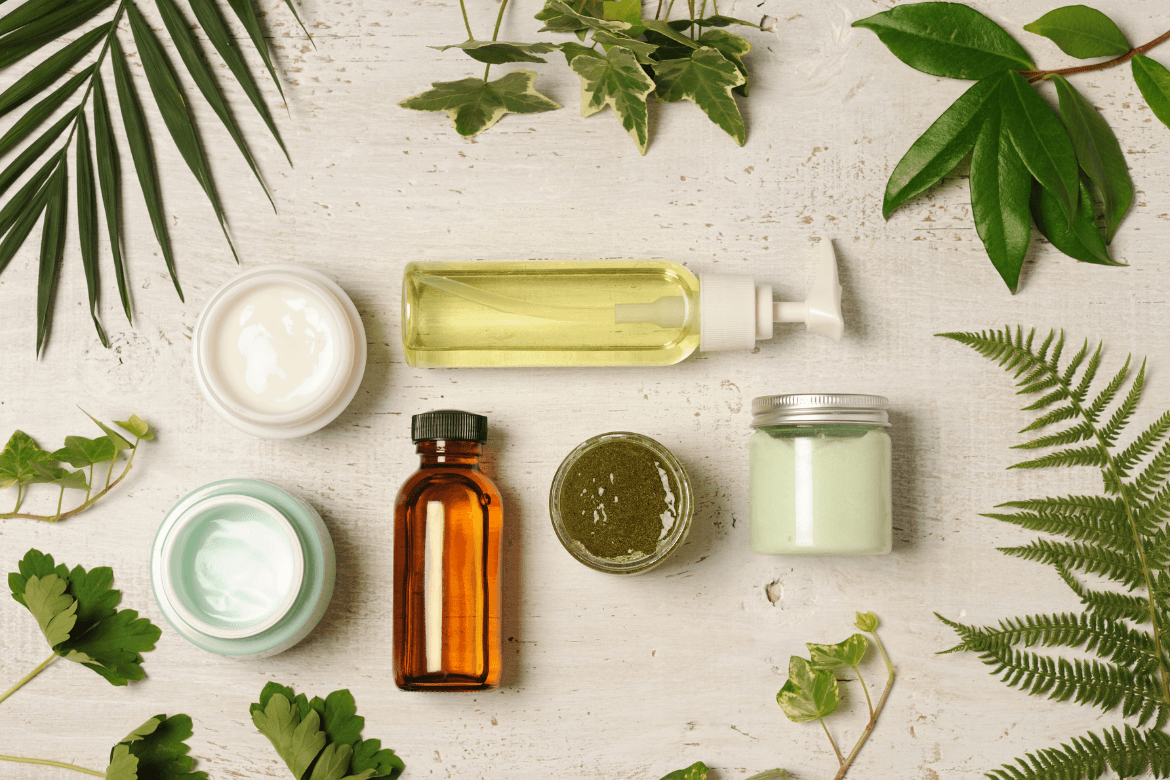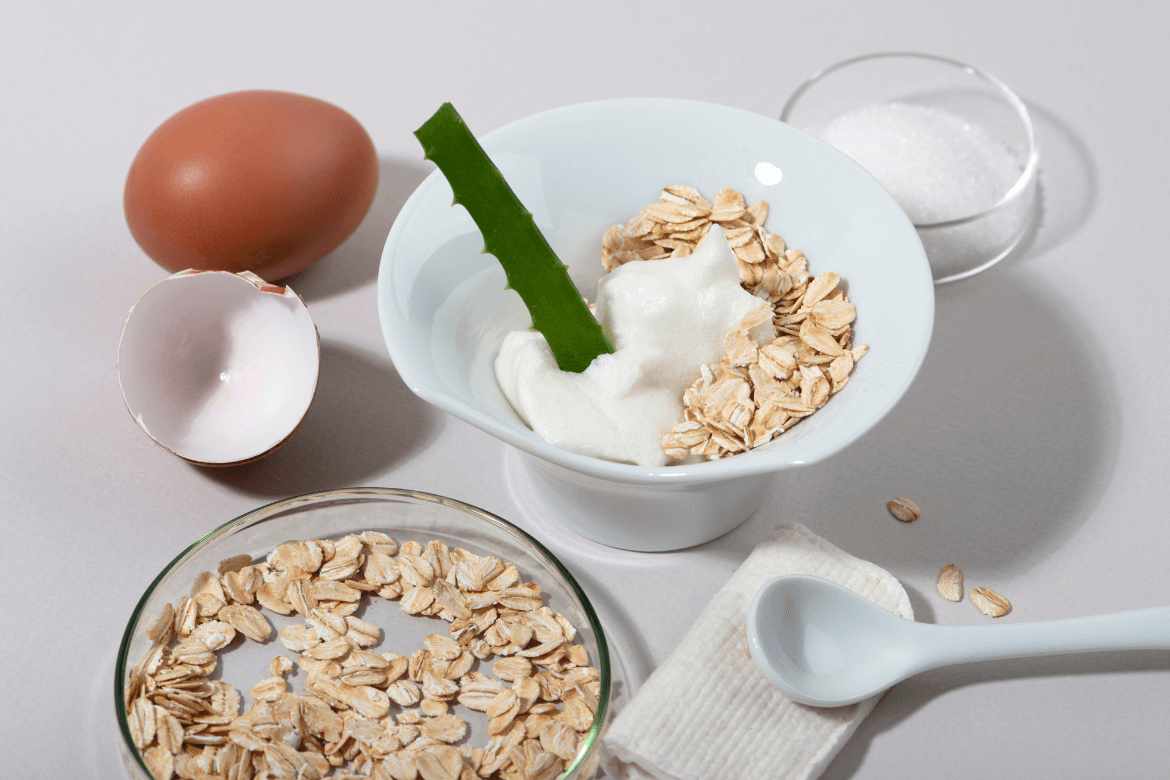
Scenario: you’re looking for a new sunscreen. You’ve read my posts, and you know how important a good sunscreen is.
You notice words. All sorts of words. Natural, organic, cruelty-free, eco-friendly- but what does it all mean?
We’ve all been there. I know I have. Keep reading, and this will never happen to you again.
Here’s a quick breakdown of the differences between natural, organic, cruelty-free and eco-friendly:
Back to the Basics: What is Natural Skincare?
First, note the term ‘natural’ isn’t regulated in the US. However, that doesn’t mean all natural products are fake or don’t work. Let me explain:
Defining natural
Most experts agree that natural skincare products are free of synthetic fragrances, dyes, parabens, sulfates, and phthalates. By nature (pun intended), most of the products also use naturally sourced or botanical ingredients.
Identifying natural
Mother Nature herself has cooked up some awfully poisonous and dangerous substances. So ‘natural’ doesn’t always mean ‘safe.’ Think of mold – it’s natural, but it’s nasty.
On the other hand, the scientific names of some natural ingredients might sound synthetic. For example, the scientific name for vitamin B6, pyridoxine hydrochloride, is pretty scary-sounding.
These are just a few natural ingredients you’ll see in many products, from drug stores to department stores:
- Green tea
- Aloe Vera
- Shea butter
- Oatmeal
- Flaxseed
- Hemp
- Coconut oil
- Argan oil
- Castor seed oil
- Tea Tree oil
- Glycerin
How many of these are in the products you use every day? Bonus points if they fit into more than one of the categories in this post!
Beyond the Label: What is Organic Skincare?
Simply put, ‘organic skincare’ means the product is made with natural ingredients and is also certified organic.
To be certified organic, the ingredients must be grown without synthetic pesticides, herbicides, and nasty genetically modified organisms (GMOs).
So this is where it gets tricky. Remember how the term ‘natural’ isn’t regulated? Well, the world of organic skincare is similar but with one major difference.
Typically, the plants or ingredients used for organic skincare have been grown with organic farming standards. However, even then, a product only has to contain a certain percentage of organic material to win the “made with organic ingredients” label. That’s why you sometimes see ‘made of 70% organic ingredients’ in tiny print.
Understanding the Bunny: What is Cruelty-Free Skincare?
Cruelty-free skincare means products that have not been tested on animals.
You know that cute little rabbit symbol you sometimes see on a cosmetic or skincare product? That’s actually a Leaping Bunny certification, signifying that none of the ingredients were tested on furry friends and the product is cruelty-free!
What if there is no Leaping Bunny?
Many smaller or boutique brands might not be Leaping Bunny certified, but it doesn’t mean they aren’t cruelty-free. If you’re unsure, always check the company’s website.
Another important to know is that animal testing is banned in Europe, so many European companies don’t bother to advertise that their product is cruelty-free, since it’s mandatory.
Cruelty-Free Vs Vegan
Here’s another tricky one. A vegan product contains no animal products or byproducts. Some common substances that are made from animals include beeswax, lanolin, collagen, and more.
So that means…. a cruelty-free product may not have been tested on animals but might still contain animal-derived ingredients unless it’s labeled vegan.
Even more… ironic… is the fact that a product can be vegan but not cruelty-free if it’s been tested on animals. However, many ethical and conscious companies naturally combine vegan with cruelty-free, since it’s like that if you’re looking for one, you’re probably looking for both.
The Planet and Your Face: What is Eco-Friendly Skincare?
You know I’m beyond passionate about saving your face and the planet.
If a product is eco-friendly, it focuses on environmental sustainability throughout its entire lifecycle, from sourcing ingredients to packaging and disposal.
This is important because eco-friendly skincare minimizes the product’s ecological impact on the planet. So, you can literally save the world one skincare product at a time.
Convinced? Here are a few ways that your fav skincare line can practice eco-friendliness:
- Sustainable sourcing: The use of ingredients that are harvested in ways that minimize environmental impact, like organic farming.
- Biodegradable or recyclable packaging: Using packaging materials that can be easily recycled or biodegradable reduces the product’s impact on the planet.
- Reducing Carbon Footprint: Companies that aim to minimize transportation-related emissions, like sourcing ingredients locally, help reduce the product’s overall carbon footprint. As if we need another reason to go local.
Look for companies that prioritize these principles to keep it eco-friendly!
Breaking It Down: 6 Tips for Reading Skincare Labels
Don’t be intimidated by big words with hidden meanings. Getting to know what’s in your fav eye cream is easier than you think. These are 6 quick tips for mastering the ingredients list on the back of the label:
- Aim low. On most labels, Ingredients are typically listed from highest to lowest percentage, so look for synthetic names to be mainly at the bottom of the list.
- Check for street cred. Or at least certifications like Leaping Bunny or USDA Organic.
- Avoid additives. Avoid ingredients like parabens, sulfates, and fragrances, which can be harsh on your face and the environment.
- Look for sustainable packaging. Check if the packaging is recyclable, locally sourced, or crafted with sustainable materials.
- Get to know unfamiliar ingredients. A product ingredient list shouldn’t be a wall of words you don’t comprehend. If there’s a name you don’t recognize, take a moment to research it. Bonus: knowing what you’re putting on your skin is empowering!
- Do a test. Before slathering a new substance all over your precious face, consider doing a patch test to make sure it’s going to end well.
Remember, it’s your skin, and reading labels is your responsibility. Take pride in getting to know your skincare products – a little detective work for a glowing face is worth it!
Naveen-friendly Skincare
I hope my post has clarified the common questions between natural, organic, cruelty-free, and eco-friendly skincare. Got questions or just found this post helpful? Let me know by commenting below. Don’t skip my other natural skincare resources.





